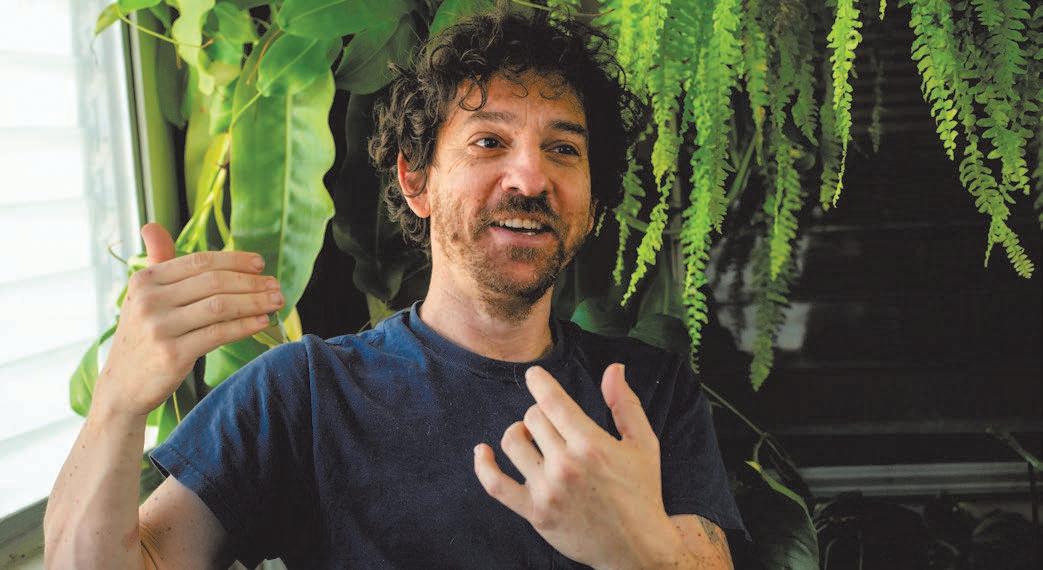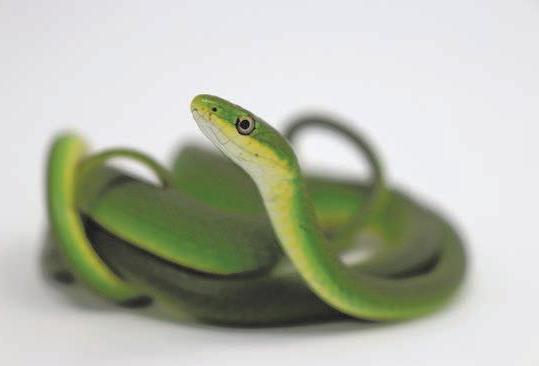NEW NE WS SNAKE OIL SALESMEN IN THE SENATE Florida senators Marco Rubio and Rick Scott ‘SLITHER’ out an unfunded bill intended to fight invasive species BY DAVE P LOTKIN
T
wo of Florida’s most reptilian politicians say they statement last week. “But this incredible progress is are “SLITHER”-ing out legislation to combat threatened by invasive species.” The bill, S. 3603, has a title that conjures up more quesinvasive species, but they aren’t funding the tions than answers: “A bill to amend the Water Resources measure. U.S. Senators Marco Rubio and Rick Scott are co- Development Act of 1996 to require the South Florida Ecosystem Restoration Task Force to develop a priority sponsoring a bill called the Suppressing Looming Invasive Threats Harming Everglades Restoration Act, list for reducing, mitigating, and controlling invasive species within the South Florida ecosystem, and for other or “SLITHER.” (Yes, that’s really what they named it.) The legislation supposedly provides for new technol- purposes.” It amends Clinton-era water policy to include a priorogy to target and eliminate the non-native plants and ity list for the task force, “and for other purposes.” animals that are threatening ongoing Everglades restoSo far, it has no companration. The senators say this ion bill in the U.S. House. includes remedies to remove Congress.gov indicates it was the enormous Burmese filed last Tuesday and read pythons who moved to Florida twice, before being referred sometime after you did. Florida is home to the Senate Committee “Everglades restoration on Environment and Public to more than 500 is critically important to the Works. That’s all they have to State of Florida,” said Rubio non-native plant say about it so far. in a press release. “The Undoubtedly, Burmese and animal species, SLITHER Act will allow the pythons are super-destructive federal, state, tribal and local including the infamous to wildlife and human strucpartners on the Task Force tures – Gov. Ron DeSantis ‘herpes monkeys’ of to collaborate and innovate in even started a “Python Bowl” new ways.” Jacksonville, delicious with the NFL last year to hunt If the proposal passes, says them. lionfish and freezeRubio, himself an accomFlorida is now home to plished political chameleon, prone iguanas. more than 500 non-native it will also make it easier “to plant and animal species, measure the progress of state including the infamous “herand federal investment in pes monkeys” of Jacksonville, Everglades restoration.” feral hogs everywhere, deliThe South Florida cious lionfish, northern Ecosystem Restoration Task curly-tailed lizards and iguaForce would apparently be responsible for overseeing the funds, but not much else nas that freeze and plummet from trees every year – just is explained in the two senators’ statements. The text to name a few. According to the National Parks Service, of the bill itself shows it would amend existing law to the Everglades alone is believed to host 220 non-native include a priority list of invasive species, but that no plant species and dozens of types of nonnative reptiles, funding is provided for the directive, which is to be made birds, amphibians, fish, insects, mammals, mollusks and using “existing amounts appropriated to the Task Force.” crustaceans. How would SLITHER slither into existing environScott, who slithered to Florida from Texas after overseeing the largest and most cold-blooded Medicare fraud mental and agricultural regulations? Only the bill text in U.S. history, was equally nebulous about the bill but, can reveal that, but the inclusion of the Water Resources Development Act of 1996, signed by Bill Clinton, is a well … that’s how Rick rolls. “We’ve successfully fought to fund projects that place to start. That act reauthorized the Secretary of preserve and protect our Everglades,” said Scott in a the Army to carry out “specified projects for naviga-
tion, flood control, flood and storm damage reduction, environmental preservation and restoration, shoreline erosion protection, hydropower, and hurricane damage reduction” in Florida, the District of Columbia, and 16 other states – but that barely scratches the surface of its impact on Florida’s coastlines and the Everglades. Scott mentions two past projects, “repairs to the Herbert Hoover Dike and the EAA Reservoir.” The Hoover Dike is the 143-mile earthen dam encircling nearly the entirety of Lake Okeechobee. It’s managed by the U.S. Army Corps of Engineers and has been prone to spills and breaks since they built up its levees between 1932 and 1938. The Florida Legislature and then-governor Scott approved a plan to use state dollars to speed up dike repairs by three years. The EAA Reservoir was initially planned to be completed in 2005, but was delayed to instead build it on land being acquired from U.S. Sugar closer to Lake Okeechobee. When that deal fell through, the project had nowhere to go. Work on the EAA Reservoir project isn’t scheduled to begin again until 2021. So Scott’s examples don’t exactly instill confidence. Even though the bill doesn’t address how the new directives would be funded, Shannon Estenoz, COO of the Everglades Foundation, told the Fort Myers NewsPress she’s optimistic anyway. “Invasive species are really important, I think the government has some really good people working on it and I’m really grateful to those senators for paying attention to it and wanting to empower those folks even further,” Estenoz said. Though senators Rubio and Scott claim their legislation will protect the environment, failing to fund their proposal is cause for concern. Whether the bill will help the Everglades – or the corporate interests seeking to further exploit Florida’s “River of Grass” – is yet to be seen, but unfunded mandates in the name of environmental protection are as sneaky as a Burmese python plucking white-tailed deer from the mouths of native bobcats.
orlandoweekly.com
news@orlandoweekly.com
●
MAY 13-19, 2020 ● ORLANDO WEEKLY
11







